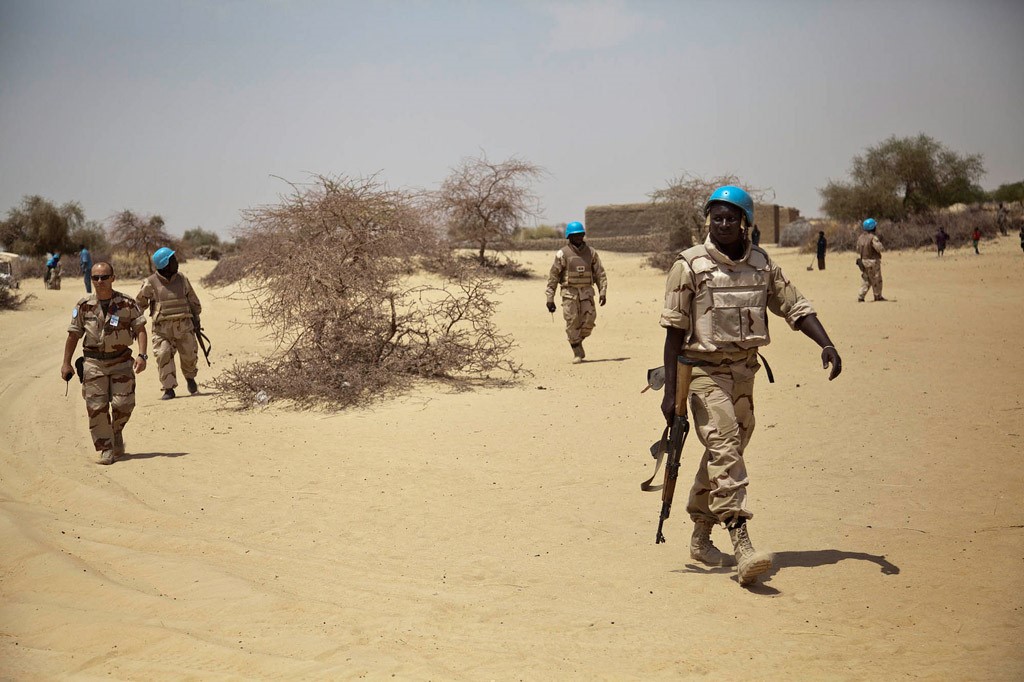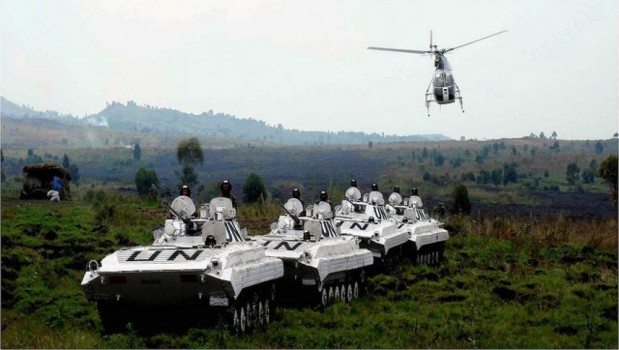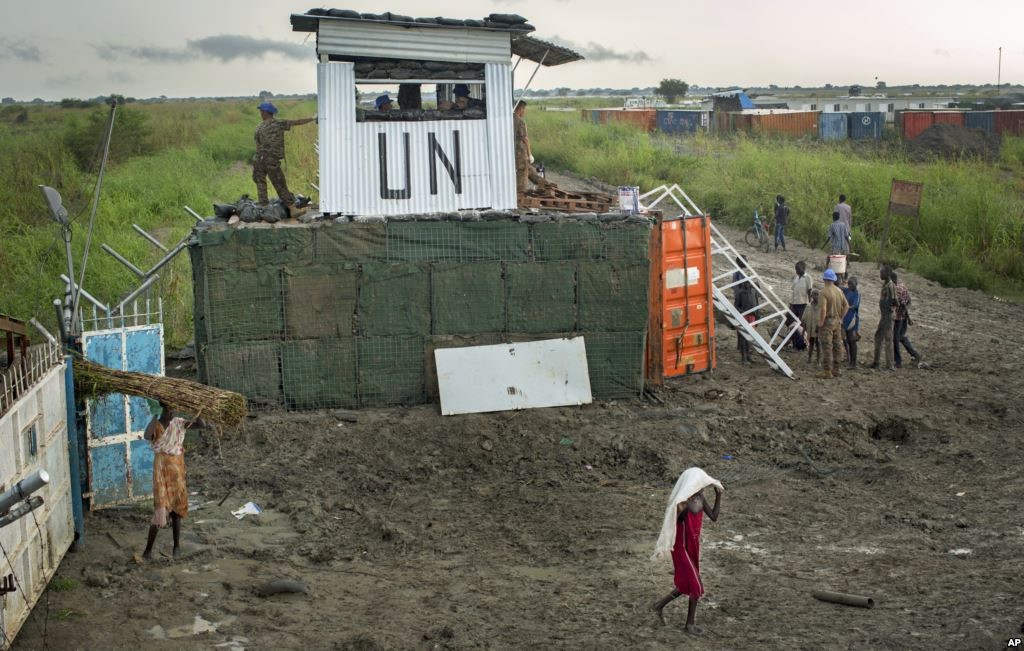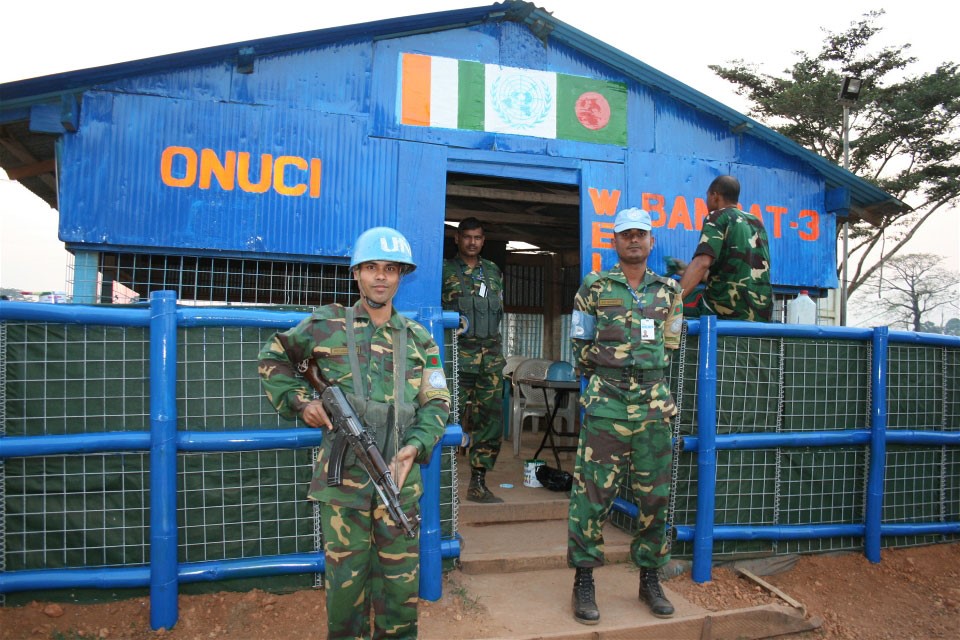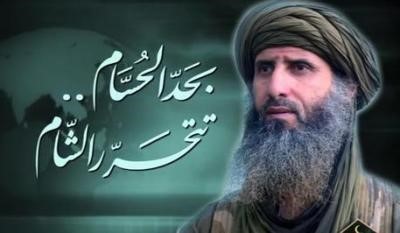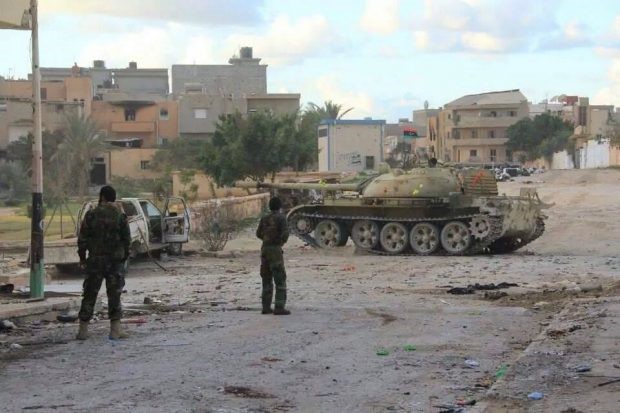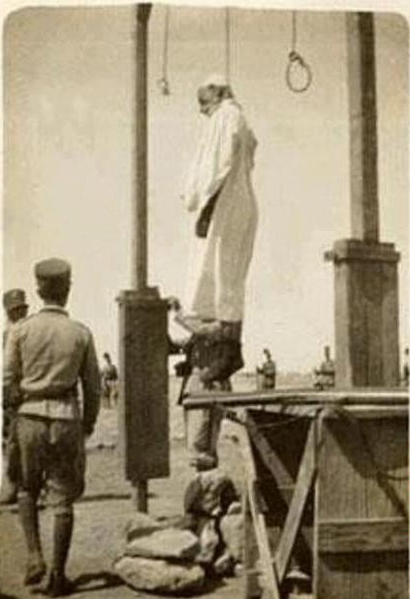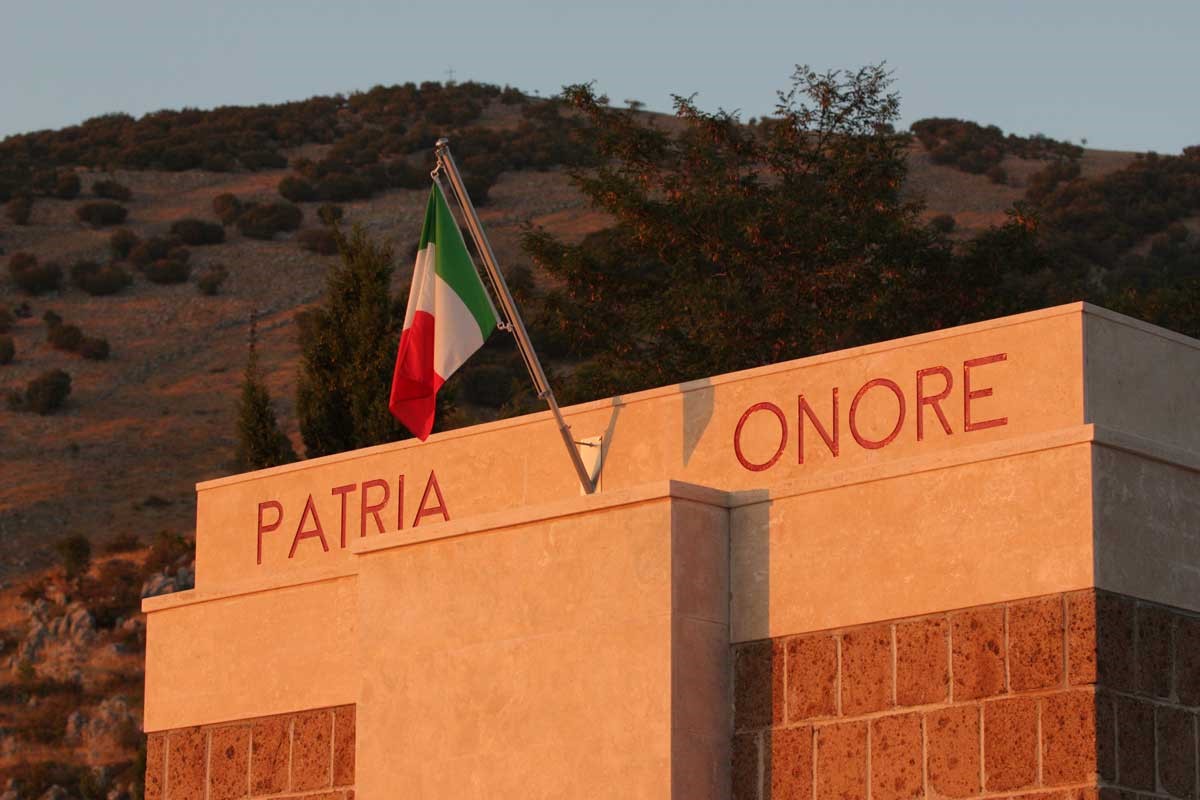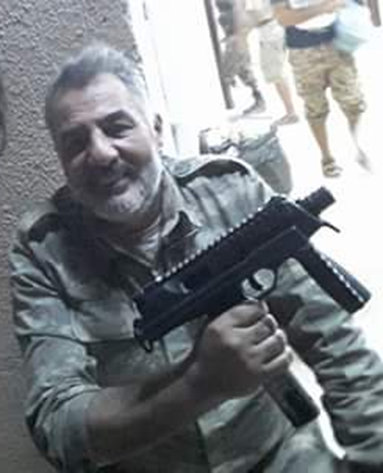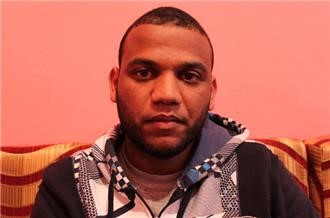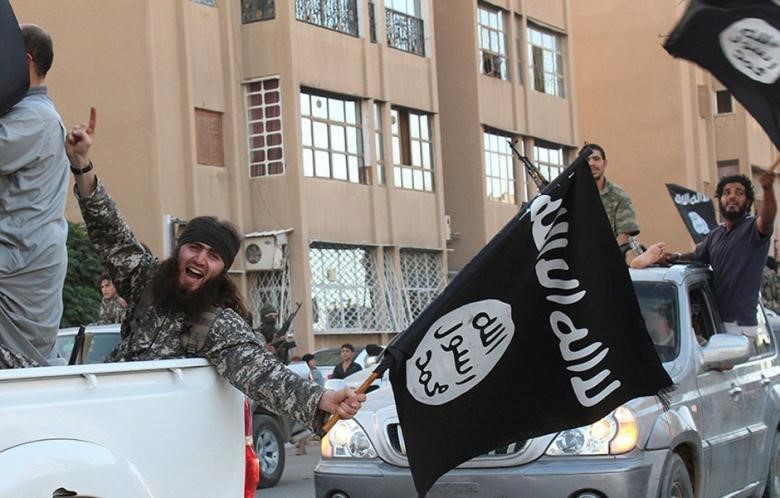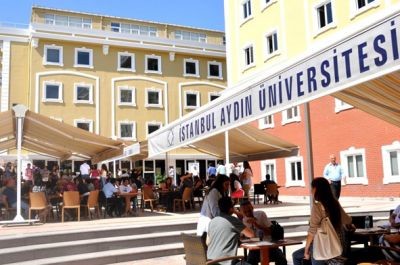Andrew McGregor
AIS Special Commentary
July 21, 2016
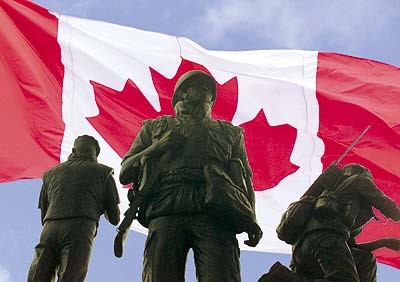 Canadian Peacekeeping Memorial, Ottawa (Frank Hudec/DND)
Canadian Peacekeeping Memorial, Ottawa (Frank Hudec/DND)
Canada’s Prime Minister Justin Trudeau responded with familiar platitudes following the brutal terrorist attack in Nice, offering “sympathy” while claiming “Canada stands with France as a steadfast ally” that will “continue to work with our allies and partners to fight terrorism in all its forms.” [i]
Yet taking the fight to the enemy is apparently not in the cards; Canada’s Liberals have no taste for a direct confrontation with the Islamic State organization.
Liberal defence policy is grounded in a belief that Canada is a “peacekeeping” rather than “peacemaking” country, and the search is now underway to find a politically appropriate place to resume large-scale peacekeeping duties, preferably African, preferably Francophone and definitely under UN auspices. These parameters immediately disqualify action against Islamic State or al-Qaeda affiliates in the most active fronts; Libya, Nigeria and Somalia. Libya and Nigeria have no peacekeeping missions and Somalia’s peacekeeping mission (actually a European-financed war against al-Shabaab) is conducted by the African Union, not the UN. So what’s left? Let’s have a look at the nine candidate missions in Africa, most of which are dominated by personnel from non-allied nations:
MINURSO – Western Sahara
Going strong since 1991, MINURSO is the African equivalent of the Cyprus peacekeeping operation (1964 to present); a seemingly endless mission with no apparent resolution in sight. Why? Because, like Turkey and Greece in Cyprus, the Western Sahara issue is manipulated by two implacable rivals (Morocco and Algeria in this case) as a form of proxy war that spares the economic and political disruption that would be created by a real war between the two nations. MINURSO is the only UN mission to be distinguished by an absence of any human rights mandate, meaning it can only watch abuses without intervention. However, the end to this mission may be in sight – Morocco has begun shutting down MINURSO operations in Moroccan-occupied Western Sahara, claiming the UN has abandoned its neutral stance in the region.
Experience – Canada contributed 35 peacekeepers to MINURSO between 1991 and 1995.
Mission Fatalities – 15[ii]
Desirability – Minimal
Language Compatibility[iii] – Minimal (Spanish and Arabic)
Risk to Canadian Armed Forces (CAF) personnel – Minimal
Political Payoff – Minimal
MINUSCA – Central African Republic
MINUSCA has struggled to cope with savage sectarian violence since April 2014, but its extended mandate is up at the end of the month. France is reducing the size of its own independent deployment though bandits and gunmen still roam much of the nation. A South African effort to intervene in the conflict ended in military disaster and withdrawal in 2013.[iv] The UN mission has been rife with accusations of child sexual abuse and rape, with an entire contingent of 800 Congolese peacekeepers being sent home. Peacekeepers from France, Burundi, Tanzania, Morocco and several other countries are being investigated on similar charges with new cases emerging all the time. MINUSCA is unusual in that it has a mandate to take military action to disarm and neutralize rebel fighters, though this goal sometimes appears to be of secondary importance for the UN peacekeepers.
Experience – Canada contributed an 80-man French-speaking signals unit from 1998-99 to MINURCA, an earlier UN peacekeeping effort in the CAR.
Fatalities – 22
Desirability – Minimal
Language Compatibility – Optimal (French)
Risk to CAF personnel – Significant
Political Payoff – Moderate
MINUSMA – Mali
MINUSMA is undoubtedly the most dangerous of all the potential missions, with 101 Peacekeepers killed since April 2013.
France is conducting counter-terrorism operations in northern Mali together with its regional partners Chad and Niger as part of Operation Barkhane. As part of MINUSMA, Canadian troops would not participate in such operations, though it would be able to operate alongside NATO allies Germany (400 troops divided between MINUSMA and an EU training mission) and Holland (400 troops in MINUSMA but in the process of withdrawing four vitally needed Apache attack helicopters plus three utility helicopters). MINUSMA’s mandate has been renewed until June 2017 and it is adding another 2,000 personnel.
Mali is certainly in great need of any professional assistance as terrorism begins to spread into the previously unaffected south, where most of the population lives. Of all the possible operations, this would have the greatest direct impact so far as countering terrorism.
As conditions worsen in Mali, the UN has pledged to take a more “active and robust” approach to applying its mandate of enforcing the peace agreement and restoring government authority.[v] However, whatever good work is accomplished by the UN mission is steadily undone by the Malian Army’s determination to return to the same brutal treatment of civilians that inspired the 2012 rebellion.
Fatalities – 101
Desirability – Optimal
Language Compatibility – Optimal (French)
Risk to CAF personnel – Significant
Political Payoff – Optimal
MONUSCO – Democratic Republic of the Congo (DRC)
Established under an earlier name in 1999 to monitor a peace agreement, this mission has grown into the UN’s largest and most expensive peacekeeping mission with no end in sight. Since its start, MONUSCO has become entangled in a series of new conflicts and now acts more as a support unit for the ineffective Congolese Army than a peacekeeping mission. Even for peacekeepers with access to modern medical facilities (unlike the local population), service in the Congo can be perilous; over half of the mission’s 263 fatalities are from illness.
MONUSCO peacekeepers have been accused of trading ammunition and rations for ivory, drugs and locally mined gold. In 2012 they abandoned the city of Goma to a much inferior rebel force claiming they were only authorized to protect civilians. The unarmed civilians of Goma were, of course, left to their fate. Despite the formation of a unique UN offensive combat formation known as the Force Intervention Brigade (FIB), UN peacekeepers are no longer trusted locally to provide protection from rampaging rebel groups. In the violence-plagued North Kivu region, the UN’s peacekeepers are referred to as “tourists in helicopters.”[vi]
India, Bangladesh and Nepal are principal contributors to MONUSCO, though India is seeking to separate itself from a mission that has brought criticism and losses of personnel. MONUSCO’s mandate has been renewed until June 2017.
Fatalities – 263 since 1999 (includes MONUC before it was renamed MONUSCO)
Desirability – Minimal
Language Compatibility – Optimal (French)
Risk to CAF personnel – Moderate
Political Payoff – Moderate
UNAMID – Darfur
This joint UN/African Union mission has taken a heavy toll of peacekeepers killed (233 since July 2007) but has had little impact on Sudan’s counter-insurgency operations and their attendant atrocities. Its mandate has been renewed until June 30, 2017 despite the objections of Khartoum, which never wanted the mission in the first place. In the meantime Khartoum toys with UNAMID, denying it access to areas of conflict and holding up supply shipments and visas for UN officials.
Small to large scale attacks on peacekeepers in Darfur have been common from the beginning – some of these attacks are believed to have been carried out by government forces or their proxies in an attempt to force the peacekeepers out. UNAMID’s strategic goals are protection of civilians and humanitarian efforts – the mission takes no action against insurgents or government troops. The largest contributors to the mission are Rwanda, Ethiopia and Egypt. Despite having had little impact on the ongoing conflict (a remarkable 2.6 million people are still displaced), UNAMID is now the second largest UN peacekeeping force with an annual budget of $1.35 billion.
Experience – Canada contributed seven military administrators and armor trainers from 2007 to 2009.[vii]
Fatalities – 233
Desirability – Minimal
Language Compatibility – Minimal (Arabic)
Risk to CAF personnel – Significant
Political Payoff – Moderate
UNISFA – Abyei (Sudan/South Sudan)
The district of Abyei is home to a nasty little struggle over an oil-rich but otherwise innocuous piece of land on the border between Sudan and South Sudan. Since neither party could agree who owned the land, it was simply left out of the peace agreement establishing South Sudan’s independence– not a good sign that a resolution is impending. In the meantime, civilians take a beating through efforts to depopulate the area. Established in 2011, UNIFSA is overwhelmingly Ethiopian in composition.
Fatalities – 20
Desirability – Minimal
Language Compatibility – Moderate (English)
Risk to CAF personnel – Moderate
Political Payoff – Minimal
UNMIL – Liberia
Established in 2003 UNMIL is an unlikely choice as it is in a draw-down phase after its annual budget reached an unsustainable $340 million. Pakistan, Bangladesh and Ethiopia are the main contributors.
Fatalities – 197
Desirability – Minimal
Language Compatibility – Moderate (English)
Risk to CAF personnel – Moderate
Political Payoff – Minimal
UNMISS – South Sudan
In the young nation of South Sudan power still comes from the mouth of a gun, as both the government and the army are divided by differences between the country’s two largest tribes, the Dinka and the Nuer. With nearly all the nation’s oil revenues spent on arms, South Sudan is awash in weapons. Raids, clashes, massacres and ambushes are South Sudan’s reality.
Without a mandate for intervention, UNMISS (formed in July 2011) can do little more than offer refuge in their camps to masses of civilians fleeing certain death. Much of the current struggle is fuelled by the ongoing proxy war between Sudan and Uganda, the latter deploying sizeable numbers of troops and armor in South Sudan. The fact that South Sudan sits on some of the world’s largest oil reserves has done nothing to discourage all manner of small armed movements from trying to seize their slice of petroleum revenues.
The African Union has agreed to deploy thousands more peacekeepers to reinforce UNMISS, though the plan is opposed by South Sudan president Salva Kiir Mayardit (a Dinka).[viii] Local protests against the UNMISS presence are common.
Experience – Canada had a limited contribution (45 peacekeepers) to UNMISS from 2005 to 2009.
Fatalities – 43
Desirability – Minimal
Language Compatibility – Moderate (English)
Risk to CAF personnel – Moderate to Significant
Political Payoff – Moderate
UNOCI – Côte d’Ivoire
These days UNOCI is a generally low-risk operation with a 2004 mandate for assisting the implementation of peace agreements following the 2003 (and later 2011) civil wars and providing disarmament and humanitarian assistance. UNOCI is currently trying to draw attention to the prevalence of rape and other sexual violence in Côte d’Ivoire, where two-thirds of such attacks are on children.
Experience – A small number of Canadian police served with UNOCI
Fatalities – 143
Desirability – Moderate
Language Compatibility – Optimal (French)
Risk to CAF personnel – Minimal
Political Payoff – Minimal
Conclusion
Rather than fighting al-Qaeda and the Islamic State organization alongside our allies, Ottawa now prefers to join the ranks of second-rate militaries from third-world countries that rent out ineffective troops for UN cash. Though many UN missions perform important work in both the military and humanitarian fields, the intractability of some conflicts is often aggravated by the UN military presence, which discourages any sense of urgency in reaching reconciliation, particularly if one party believes it can use the presence of a UN mission to further their own strategic goals. While joining a UN African peacekeeping mission satisfies a Liberal nostalgia for a largely mythical golden era of Pearsonian peacekeeping, it is also a means of sidestepping a confrontation with al-Qaeda and the Islamic State for domestic political considerations, a confrontation in which Canada’s professional military and Special Forces could make a meaningful contribution in direct support of our allies beyond meaningless expressions of sympathy and solidarity.
ACRONYMS
MINURSO – Misión de las Naciones Unidas para la Organización de un Referéndum en el Sáhara Occidental
MINUSCA – Mission multidimensionnelle intégrée des Nations unies pour la stabilisation en Centrafrique
MINUSMA – Mission multidimensionnelle intégrée des Nations unies pour la stabilisation au Mali
MONUCO – Mission de l’Organisation des Nations Unies en République démocratique du Congo
MONUSCO – Mission de l’Organisation des Nations unies pour la stabilisation en République démocratique du Congo
UNAMID – United Nations Mission in Darfur
UNIFSA – United Nations Interim Security Force for Abyei
UNMIL – United Nations Mission in Liberia
UNMISS – United Nations Mission in South Sudan
UNOCI – United Nations Operation in Côte d’Ivoire
NOTES
[i] Canadian Press, July 15, 2016 – http://www.cbc.ca/news/trending/bastille-day-nice-attack-canadian-reaction-1.3680263
[ii] Figures used for UN missions in Africa are taken from official UN sources: http://www.un.org/en/peacekeeping/resources/statistics/factsheet.shtml; Fatality statistics are taken from http://www.un.org/en/peacekeeping/fatalities/documents/stats_3.pdf (as of June 7, 2016).
[iii] “Language Compatibility” refers to the language compatibility of the host nation in light of the government’s stated desire to have a French language mission – therefore “Optimal” = French language, “Moderate” = English, and “Minimal” = languages other than French or English.
[iv] See Andrew McGregor: “South African Military Disaster in the Central African Republic: Part One – The Rebel Offensive,” Terrorism Monitor, April 4, 2013, https://www.aberfoylesecurity.com/?p=238 ; “South African Military Disaster in the Central African Republic: Part Two – The Political and Strategic Fallout,” Terrorism Monitor, April 4, 2013, https://www.aberfoylesecurity.com/?p=236
[v] UN News Centre, “Security Council extends mandates of UN peacekeeping operations in Darfur, Golan and Mali,” June 29, 2016; http://www.un.org/apps/news/story.asp?NewsID=54357#.V45YkjVqncc
[vi] Al-Jazeera, January 19, 2016, http://www.aljazeera.com/indepth/features/2016/01/peacekeepers-drc-longer-trusted-protect-160112081436110.html
[vii] Government of Canada, “Archived – Canadian Forces Launches Contribution to U.N.- African Union Mission in Darfur,” CEFCOM/COMFEC NR 08.008 – February 4, 2008, http://news.gc.ca/web/article-en.do?&nid=376349
[viii] Radio Tamazuj, July 19, 2016, https://radiotamazuj.org/en/article/au-agrees-send-more-peacekeepers-south-sudan-kiir-plans-demonstrations

